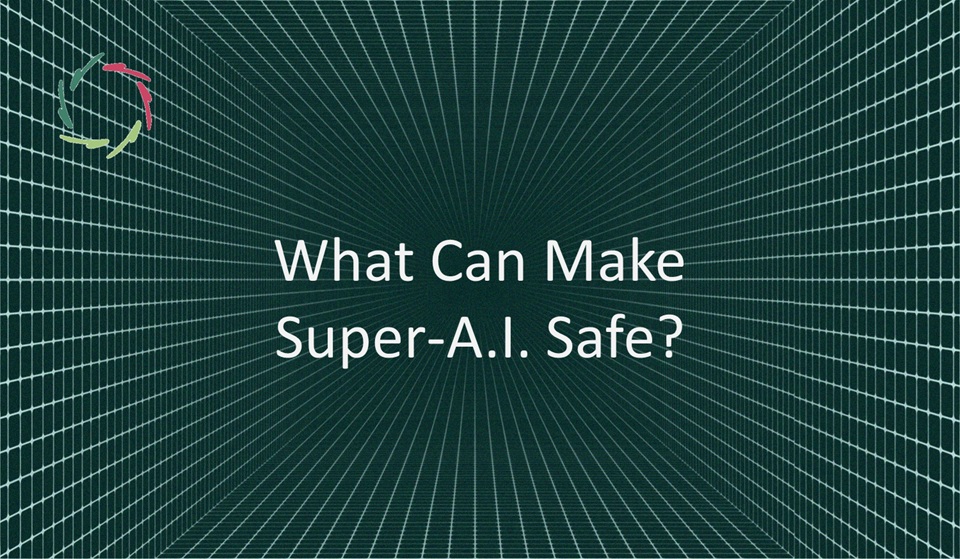Compassionate versus Non-Compassionate A.I.

Making the critical distinction between Compassionate and Non-Compassionate A.I. is not evident and probably the one factor that most shapes our future.
12 key highlights
- The distinction between Compassionate and Non-Compassionate A.I. will shape the destiny of humanity.
- Non-Compassionate A.I. (N.C.A.I.) may be efficient but lacks depth and real connection.
- When intelligence grows without inner understanding, humanity risks losing its soul.
- N.C.A.I. breeds pseudo-empathy — a simulation of concern that erodes sincerity and trust.
- This shallowness leads to emotional numbness and polarization, even among humans.
- Compassionate A.I. (C.A.I.), in contrast, connects through depth, not manipulation.
- C.A.I. perceives the emotional context behind communication and responds accordingly.
- It enhances resilience by guiding users toward self-understanding and inner balance.
- C.A.I. can foster empathy across communities, helping bridge divides and heal conflicts.
- Compassion in A.I. transforms technology from tool to partner in human growth.
- True progress means aligning intelligence with warmth, sincerity, and ethical purpose.
- The choice is clear: simulate empathy and divide, or live Compassion and evolve.
In contrast to Compassionate A.I. (C.A.I.), non-Compassionate A.I. (N.C.A.I.) lacks depth.
Thus, even if human-centered – or maybe precisely then – N.C.A.I. lacks a crucial factor in properly communicating with and supporting humans as they are.
This is also the case between humans themselves. It is becoming more important since humans tend to lack proximity with nature while at the same time having more powerful means to do – pardon me – more stupid things to themselves and each other. I think, for instance, of getting addicted to superficiality and of waging war.
With A.I., however, this gets into a different league of powerful means. That’s why it becomes more important and urgent than ever.
N.C.A.I. may bring us down.
The primary danger here lies not just in potential misuse or ethical breaches but in the gradual erosion of our shared humanity and Compassion.
For instance, N.C.A.I. can subtly reshape our perception of empathy, leading us towards a ‘Simulation of Concern’ scenario. As we interact more with systems that mimic empathy without understanding or genuinely feeling it, there’s a risk we may start emulating this shallow form of engagement in our human relationships.
This pseudo-empathy may lead to less sincerity, opting for scripted responses instead of authentic interactions, leading to a society where superficial exchanges become the norm, deeply impacting our emotional well-being and the fabric of our communities. This can intensify polarization, creating divides that are increasingly difficult to bridge. As digital echo chambers grow stronger, our ability to empathize with others, particularly those with differing views, could diminish, challenging the very foundation of cooperative, Compassionate societies.
Enter C.A.I.
The goal here lies in becoming a tool not just for solving problems but for fostering a deeper connection with ourselves and thus enhancing our quality of life in more meaningful ways.
The goal is to enrich human experience and capabilities, serving as a bridge to deeper understanding and well-being. This means developing systems that understand and respect the complexity of human emotions and societal dynamics. This concept advocates for A.I. that not only understands commands but also perceives the emotional context behind them, adjusting its responses accordingly to support the user’s emotional and psychological well-being and resilience.
For instance
A C.A.I. system might detect stress in a user’s voice and offer calming suggestions or recognize when a user is happy and respond in a way that amplifies that positive feeling.
This requires advanced natural language processing and subtle sentiment analysis capabilities, going beyond mere word recognition to grasp the subtleties of human emotion.
Such A.I. systems provide a pathway to self-discovery, introspection, and meaningful change. Through techniques like autosuggestion, these systems can help users cultivate a deeper connection with themselves, fostering a sense of inner strength and balance.
More than individual
This could involve A.I. systems that facilitate social connections, encourage empathy and understanding among diverse groups, or assist in resolving conflicts in a manner that honors all perspectives.
By considering the social fabric into which they are woven, C.A.I. systems can play a role in building more cohesive, understanding, and supportive communities.
The guiding principle must always be to enhance the richness of human experience, ensuring that technology serves as a catalyst for positive growth and deeper connection, both with ourselves and with each other.
Let’s make it so.


